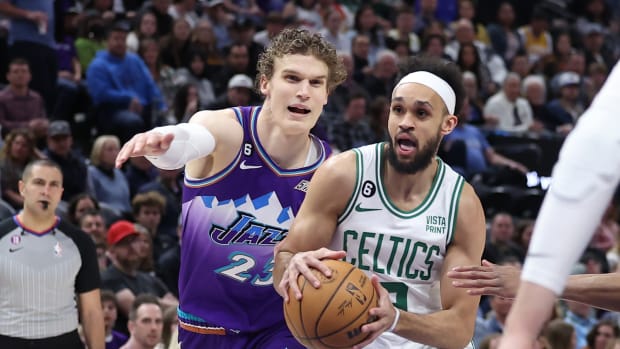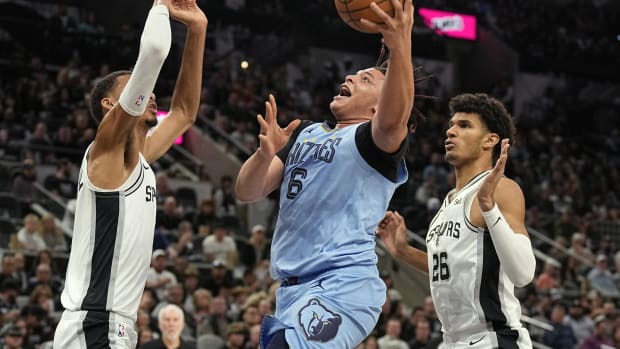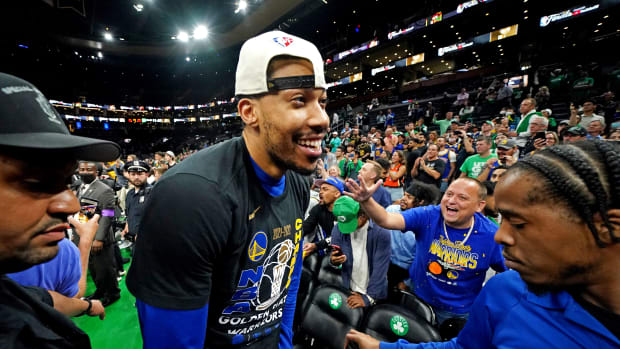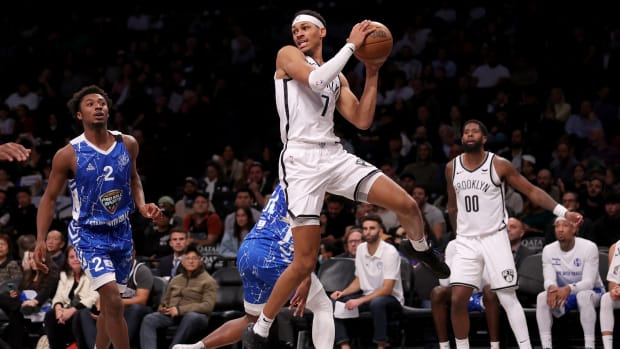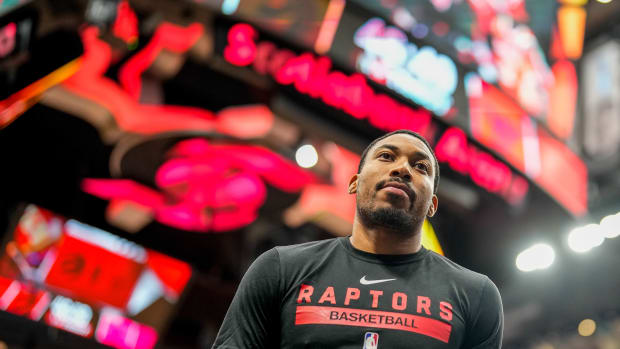How Jazz can Replicate Mavs' Blueprint to Competing Deep into Playoffs
With the NBA Playoffs in their respective conference finals, it marks 15 years since the Utah Jazz found themselves competing this far in the postseason. The Jazz need to find their way back to real contention and could learn a few things from the remaining teams.
One thing that is similarly apparent with three of the four teams remaining is their lack of a max-salary center. You could additionally argue that each of the starting centers on the Golden State Warriors, Dallas Mavericks, and Boston Celtics are the fourth or fifth-most important players on the team.
Another commonality these teams share is their respective guard-heavy and position-less team builds in what has become the landscape of success in the NBA over the last 10 years.
Now, let's not pretend the Jazz can mirror the success of the historic nature that the Steph Curry-led Warriors present. But the Jazz can specifically ‘take note’ (pun intended) of the Mavs and how the team built around Luka Doncic.
From the 2021 offseason to the trade deadline, Mark Cuban acquired a full rotation of long, flexible guards/small forwards that can switch on the perimeter defensively and space the floor for Doncic to do his magic. Let's recount the transactions that built this contender.
Dallas' Success Leaves Clues
The past summer the Mavs signed sharpshooter Reggie Bullock and defensive-minded Frank Ntilikina while also extending Tim Hardaway, Jr. Then Dallas traded Kristaps Porzingis for Spencer Dinwiddie and Davis Bertans.
Add this all to the drafting and development of Dwight Powel, Dorian Finney-Smith, Maxi Kleber, and the emerging Jalen Brunson, the Mavs have built an incredibly well-balanced team. The Mavs are a perfect example of how surrounding a star with a collection of three and D role players that are tough on defense and can create the space needed to beat the other Warrior prototypes being replicated across the league.
Even with this Mavs team likely to lose to the Warriors themselves, this is the formula that the Jazz need to adopt and duplicate that will create a successful team around Donovan Mitchell and Rudy Gobert. Keeping in mind, of course, that this argument isn’t without the ever-present asterisks that the Jazz keep the two stars together.
With all this being said, the Jazz desperately need a more flexible roster and the Mavs displayed the blueprint that took a team to the Conference Finals.
Bottom Line
It's high time Jazz executives give up on the never-ending search for a true point guard or overspending every summer on a backup center. The Jazz brass need to give up on the old ways of searching for their next Stockton and Malone-style players.
The Jazz need to learn and adapt — or else face obliteration and obsolescence. The Mavs turned their roster around in less than a year — and although the Jazz don’t have a lot of flexibility with the contracts they have on the books, it's worth noting that no contract is immovable.
The transactions are there to be made to fill Utah's roster with the role players that space the floor for Mitchell to work on offense while also complimenting Gobert's defense.
Gobert can be the second-best player on a title-contending team but he needs the defenders that will stay in front of the ball, comfortably defend/switch on the perimeter, and most importantly, bring the energy that has carried the Mavs to the Western Conference Finals.
Follow Andrew on Twitter @ArembaczNBA.
